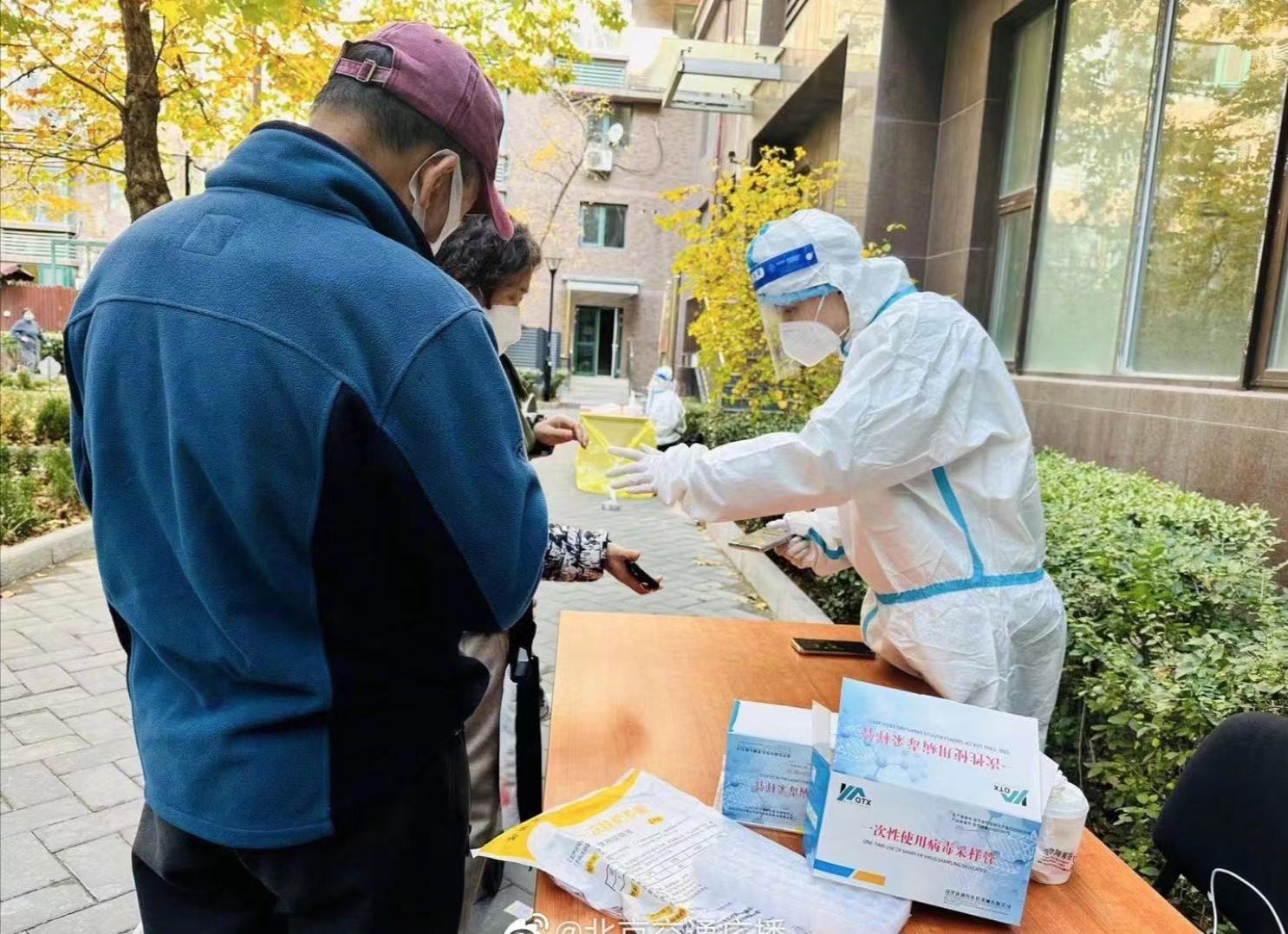
People in Beijing's Chaoyang district are getting nucleic acid tests in their neighborhood. The city’s numerous nucleic acid testing sites for large-scale testing that had been set up along the roadsides and around commercial and office areas were temporarily closed in Chaoyang district starting from Monday, which is to prevent people from cross infection during nucleic acid testing. Photo: ifeng
Beijing health authorities stated on Monday to further strengthen epidemic preventionand control measures and reminded residents not to go out unless necessary. Nucleic acid testing sites for large-scale testing that have been set up along the roadsides and around commercial and office areas in Chaoyang district are temporarily closed starting from Monday. The measures are seen as a response to the mounting pressure of soaring COVID-19 cases in the city.
The capital city reported 237 confirmed cases and 170 asymptomatic infections on Monday, 48 infections were found during nucleic acid testing at the community level, according to local health authorities.
Relevant departments have been asked to fulfill their management duties to strengthen and implement epidemic prevention and control measures. These measures include code scanning, temperature measurement and checking negative nucleic acid certificates for people entering public places, as well as doing the sanitation of the places.
Residents are reminded not to go out unless necessary, including not go to crowded places, and not go out to meals and parties. People need to wear a mask properly, keep a safe distance and maintain good personal hygiene if go out, read the reminder.
In addition, the city's numerous nucleic acid testing sites for large-scale testing that had been set up along the roadsides and around commercial and office areas were temporarily closed in Chaoyang district starting from Monday. Citizens will be tested in their neighborhood instead. This is considered to be one of the measures taken to prevent people from cross infection during nucleic acid testing.
The current round of cluster infections appeared in the capital city is not only due to the reason of strong infectiousness, fast transmission and short incubation period of the Omicron variant BF.7, a subvariant of BA.5., but also affected by an increased risk of transmission of other respiratory diseases such as influenza, local health authorities noted.
Global Times




